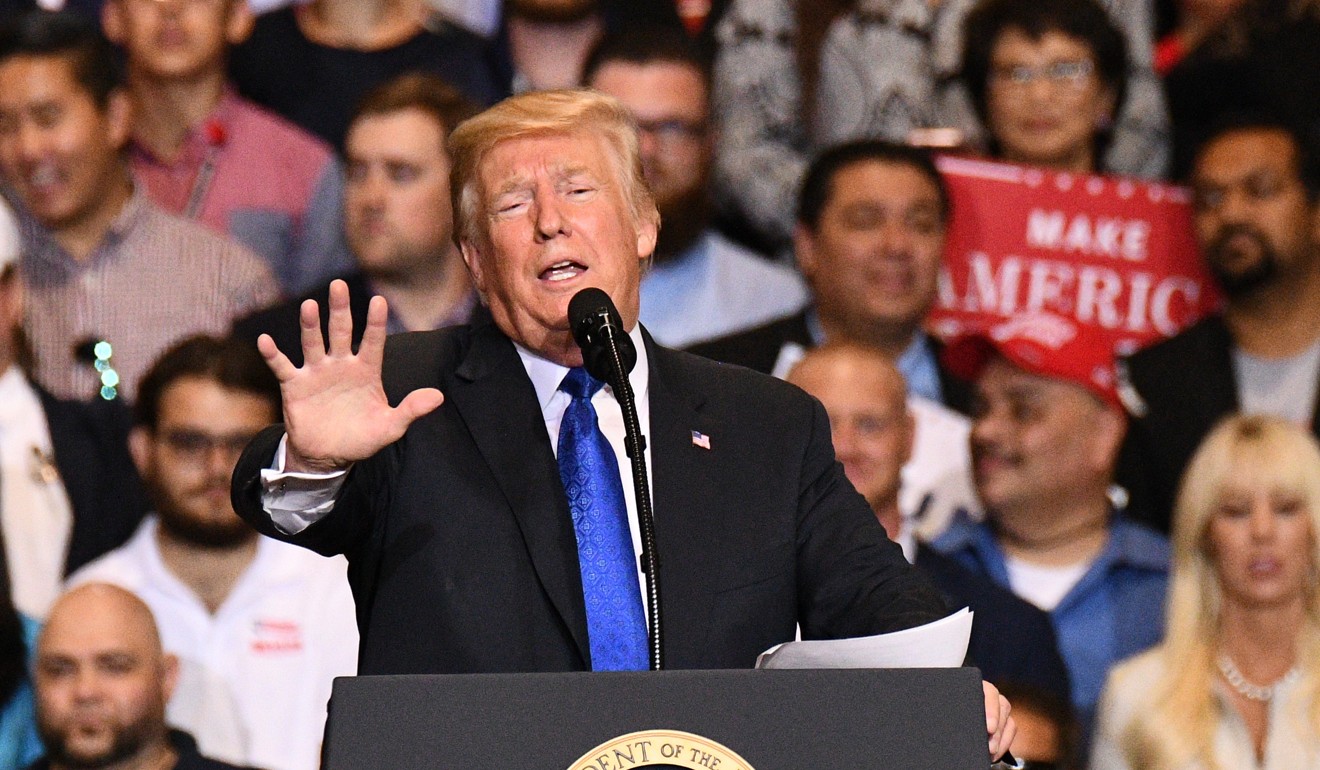
China ‘may lose foreign investment to other countries’ in trade war
Beijing should be alert to the risk of firms relocating, trade advisers and observers warn
China should be alert to the risk of foreign investment going elsewhere as the trade war with the US rages, while continuing to seek talks with Washington, government trade advisers and observers said.
The warning came amid worsening sentiment on bilateral ties after US Vice-President Mike Pence delivered the US administration’s first comprehensive China strategy last week, accusing Beijing of trying to meddle in the upcoming US midterm elections and fuelling fears the conflict will escalate further.
“If foreign companies, especially multinational companies, feel the trade dispute will be hard to resolve in the short term or see punitive tariffs lasting a long time, they may consider making changes to the industrial chain,” one trade adviser, speaking on condition of anonymity, said.
He said the government had been warned to watch closely for any sign of that happening, and to try to stabilise foreign investment.
China attracted US$86.5 billion of foreign direct investment in the first eight months, up 6.1 per cent from the same period of last year, according to official data.
“The key is to step up efforts to improve the business environment and ensure fair competition,” the trade adviser said.
China won’t back down in trade war with US: commerce minister
China could take measures such as injecting funds into the banking system and raising the export tax refund rate to offset the short-term impact on the economy, he said, but “China is yet to find a path to handle the hardline US administration”.
“For the long term, we should not give up on the US market and investment,” he said. “The government has kept up its strong rhetoric towards the US, but it should also explore ways to try to bring about talks.”
Trade war escalation will hit China harder than the US, IMF says
Beijing has signalled that it is prepared to make policy adjustments to address some of the common complaints from its trading partners such as state subsidies and intellectual property protection, according to the trade adviser, but he said it was unlikely it would make any major changes.
Pressure from Washington has gone beyond trade, with challenges over its economic system as well as the South China Sea and Taiwan. US President Donald Trump on Tuesday threatened to impose tariffs on an additional US$267 billion of imports from China, a move that would extend the punitive duties to all Chinese goods shipped to the US. He also told reporters at the White House that Beijing was not ready to reach a deal on trade, and that the US had cancelled meetings because of that.

The two sides blame each other for calling off security talks that were planned for this month in Beijing. A similar dialogue on economic issues was also suspended by Washington late last year, and trade talks ended in stalemate when the US slapped tariffs on Chinese products and China retaliated with its own duties on US goods.
Although formal negotiations have been put on hold, senior Chinese officials have kept up contact with the US business community. An American business delegation will visit China in the coming days and is expected to be received by senior leaders in Beijing, sources told the South China Morning Post.
Wang Huiyao, director of the Centre for China and Globalisation, a think tank in Beijing, said both countries should “avoid strategic misjudgment” and seek to create the conditions to allow them to return to the negotiating table.
Wang, who recently spent five days in the US where he met congressmen and advisers, said communications had to be reinforced, especially with conservative think tanks that have an influence on Trump’s China policy. “The window for holding talks is limited,” he said.
As US turns up heat on China, trade war moves beyond tariffs to new battlefronts
There was a risk that foreign firms would relocate to other countries from China, he said, and a potential new trade alliance of developed nations could also have an impact on its economy.
“More open is much safer [for China] – more open, more friends,” Wang said, adding that Beijing should pursue more free-trade talks.
That could send “a strong message” to the world on China’s opening up and reform, he said.
Wang Shouwen, a deputy commerce minister and key trade negotiator with the US, said China should improve its policy to be more in line with the rules of the World Trade Organisation and Beijing’s WTO commitments.


